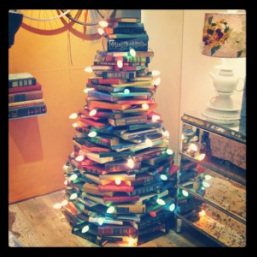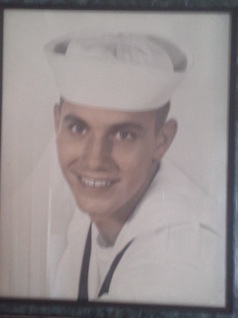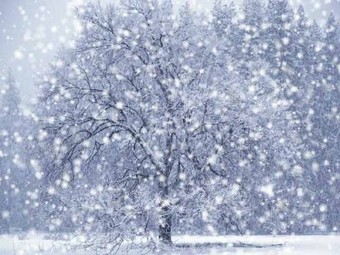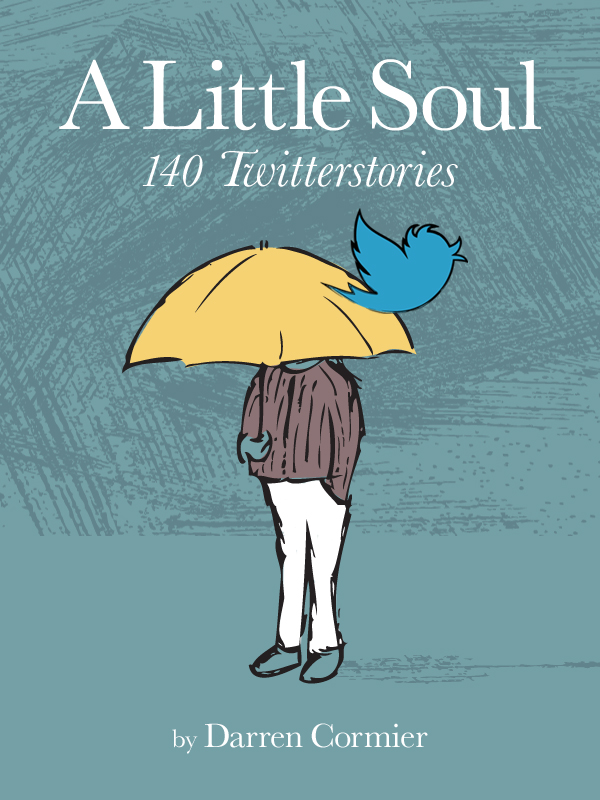
Recently I showed a friend a story, with the caveat that it was not like most of my stories. This one was sentimental in nature. (Most of my stories tend to be slightly melancholic or darker in tone.) This led to a conversation about sentimentality and how I try to keep mine buried under a veil of detachment, irony, and absurdity. She contested that (much like Dr. Cox in Scrubs) to anyone paying attention, it wasn't buried all that deep down.I am also an obsessive list maker. I have been known to make lists of lists, and my to-do lists are often so onerous as to be overwhelming.Which, by way of a long introduction, brings me to the point of this post: my favorite Christmas songs. I don't really like Christmas songs. They are full of ersatz and cliched sentimentality, jarring melodies, and bad musical arrangements. And most are filled with such saccharine imagery that it renders the complex and wonderful humanity of everyone useless and non-existent. However, there are some I like, and they tend to be understated, subtle, sentimental, and try to acknowledge the simple goal of the season: to find and spread joy and hope in whatever peaceful way we can, and to enjoy and make the best of that which we have already. This is not a definitive list: what's listed at number one is not necessarily my favorite song. And it will change over time.First, the others:
Sister Winter - Sufjan Stevens; 12 Days of Christmas - John Denver and the Muppets; Blue Christmas - Elvis Presley; Father Christmas - The Kinks; Little Drummer Boy - Bing Crosby and David Bowie (and Will Ferrell's and John C. Reilly's spoof); Christmas Card from a Hooker in Minneapolis - Neko Case cover version (Tom Waits' original is found here); Christmas Time Is Here - Charlie Brown Christmas; Hark, the Herald Angels Sing - Charlie Brown ChristmasNow, the top 5 (er, 6):5a. Just Like Christmas - Low
From Low's EP Christmas, this song, in its simple lyrics, shows how we have mistaken the physical aspects of the season (snow, cold winter) for the idea of Christmas. When Christmas isn't about the snow or anything weather related. it's about wonder and joy and recapturing a sense of childhood and youth:
On our way from Stockholm,
It started to snow,
And you said it was like Christmas,
But you were wrong,
It wasn't like Christmas at all.
By the time we got to Oslo,
The snow was gone,
And we got lost,
The beds were small,
But we felt so young.
It was just like Christmas...
Also, the melody is catchy and the ever-present sleigh bells accompany the tune but don't overwhelm it. Besides, Mimi Parker's voice is so pure and captivating, she could sing the telephone book and make it sound poignant.
5a. 25th December - Everything But The Girl
I'm a sucker for songs about missed romantic opportunity; it speaks to the introvert and hopeful romantic inside of me. But this song is more than that. It's also about the possibility of reconciliation and the undying embers of hope. The narrator is home for Christmas and he is surrounded by his family and their traditions. And while there, he realizes he could have had the connection with the someone in his life he wanted so many years before. Since it's the season of restored hope, he convinces himself that perhaps there still is a chance, that this opportunity hasn't passed him by:
And all of a sudden I´m struck with an urge to unlock a door
With a key that´s too big for my hands
And I drop it, and it falls at your feet.
Come on, come on, it´s there at your feet.
And I never, no I never ever realized.
And I never, no I never ever realized.
That we aren't given any closure (did he? did she? do they?) speaks to the universal humanity of the song. Sometimes situations don't have a happy ending, but sometimes they do. And isn't renewed hope and joy what Christmas is supposedly about anyway?
4. 7 O'Clock News/Silent Night - Simon and Garfunkel
I love artists who try to speak truth to power, who get us to pay attention to the man behind the curtain. When it is done with a whisper and not with a scream. it is so much more powerful. Simon and Garfunkel, in 1966, took the meditative, sacred tune of Silent Night (itself historically significant as it was sung simultaneously by English, French, and German soldiers on the front lines in WWI to commemorate the Christmas truce) and seamlessly spliced together snippets of newscasts from the time. The overdubbing subversively showed that, despite the season, avarice, greed, war, and the quest for power were still being practiced and pursued by politicians and that general chaos was still rampant among the citizenry. It may not be the spoon-fed confections we want at Christmas, but it does show us that in order to be better people, this is what we need not do. And it also shows, in the wake of our own national tragedies and needlessly never-ending wars, that in 45 years not much has changed.
3. Have Yourself a Merry Little Christmas - Aimee Mann
Many have covered this song and some claim that other versions are better. But for me, this version stands out. I may be admittedly biased as Aimee Mann is one of my favorite artists. But people with amazing voices tend to let their voice be the focus. With this version, the lyrics and the message of the song are at the forefront:
Have yourself a merry little Christmas
Let your heart be light
From now on, our troubles will be out of sight
Have yourself a merry little Christmas
Make the Yuletide gay
From now on, our troubles will be miles away
Here we are as in olden days
Happy golden days of yore
Faithful friends who are dear to us
Gather near to us once more...
Through the years we all will be together
If the fates allow
It's one of the few examples where generalities work to acknowledge the universality and ambiguity of each person. It acknowledges that we all have troubles, however we define them. But it also conveys better than anything else the purpose of the season (and life itself): get together with those you love and who love you and for this brief period, try to live in the now. Mann's vocals are always a combination of vulnerability and strength, reassuring us that all will be okay. Christmas songs, and music, don't get much better than this.
2. Fairytale of New York - The Pogues (with Kristy MacColl)
Nothing says Christmas spirit quite like a drunken, dysfunctional relationship. Ah... the holidays. Any song that starts out with the lines "It was Christmas Eve, babe/In the drunk tank" is not your standard Bing Crosby suburban Connecticut fare. Shane MacGowan shows us the underside of the season: those with dependency and substance abuse issues, those spending the night in jail, those in verbally abusive relationships, yet it's still filled with hope. It's a testament to MacGowan's talent as a lyricist (and the inherent jauntiness of Irish musical accompaniment: accordion, tin whistle, mandolin, banjo). It's a Christmas gift wrapped in a tattered, faded bow that's been soaked for forty days in a bottle of Bushmills. Yet, it's still a gift ("it's the thought that counts"): we can see what it once was and what it could be again with a little love, a little luck, and a little accordion accompaniment.
1. Cantique Noel (O Holy Night) - Luciano Pavarotti (from the 1978 Christmas Concert in Montreal's Notre Dame Cathedral)
My father loved classical music. I have inherited this love of classical music, perhaps as a result of this album. Every Christmas Eve in the hour or so between dinner preparations being completed and the arrival of guests, my father would go downstairs to his office and put this Pavarotti album on the record player. (Yes, record player. I'm dating myself.) He'd turn the volume as high as it would go. The fact that Pavarotti sings it in its original French just appeals that much more to my sentimental, francophone heart. Thank you, dad.
What are your favorite Christmas/holiday songs?
As always, thank you.
And Merry Christmas!




 RSS Feed
RSS Feed

